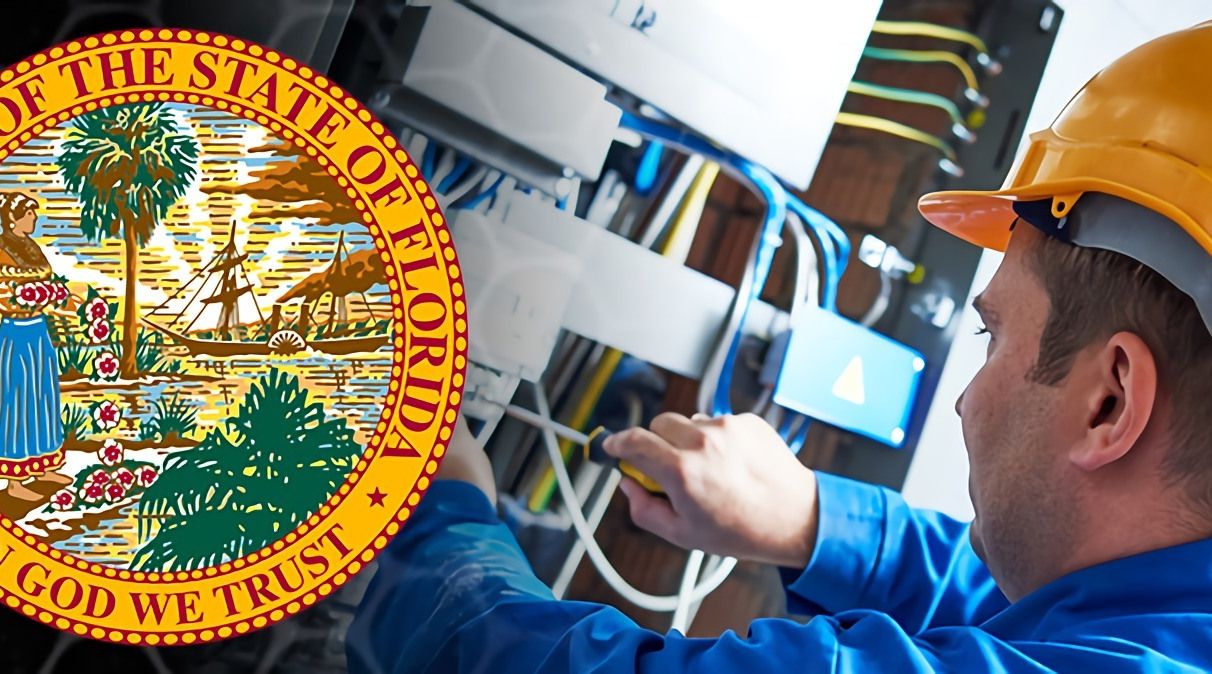We get the question “Can a handyman do electrical work in florida” and the answer isn’t cut and dry unfortunately.
There are a lot of handyman all over Nextdoor and Facebook who seem to respond to all types of electrical tasks and typically, many of them are not qualified to work on electrical components within a home – let alone the safety issues that arise from allowing them to work on electrical projects.
In Florida, a handyman cannot perform most electrical work because the state has strict regulations in place to ensure the safety and quality of electrical installations. Many Electrical companies in Florida have fixed potentially fatal issues from handymen that are claiming that they can finish the job. Companies like ServiceTradePros.com, an Electrician in Naples, FL, are dealing electrical service calls that require fixing a handyman’s “handy” work being all wrong.
These regulations are part of the Florida Building Code and are enforced by the Florida Department of Business and Professional Regulation (DBPR). Here are the key reasons why a handyman is generally not allowed to do electrical work in Florida:
Safety Concerns
- Electrical work can be dangerous: Improperly installed electrical systems can lead to serious hazards such as electrical shocks, fires, and even death. Licensed electricians undergo extensive training to understand the complexities of electrical systems and the risks involved.
- Code Compliance: Electrical work must comply with the National Electrical Code (NEC) and local building codes. Licensed electricians are trained to follow these codes to ensure that installations are safe and meet legal standards.
Licensing Requirements
- State Licensing: In Florida, electrical work is regulated and requires a license. Licensed electricians must pass exams, complete apprenticeships, and gain work experience under the supervision of a master electrician. This ensures they have the necessary knowledge and skills.
- Insurance and Liability: Licensed electricians are usually required to carry liability insurance. This protects homeowners and businesses in case something goes wrong during the work. Handymen may not have the necessary insurance coverage, which could leave you liable for damages.
Legal and Financial Implications
- Fines and Penalties: Performing unlicensed electrical work in Florida can result in fines and legal penalties for both the handyman and the property owner. The state takes these regulations seriously to protect public safety.
- Permits and Inspections: Electrical work often requires permits and inspections to ensure it meets safety standards. A handyman without a license cannot obtain the necessary permits, which could lead to problems during inspections and potential issues when selling the property.
Quality and Reliability
- Workmanship Guarantee: Licensed electricians are held to higher standards of workmanship, and many offer guarantees on their work. This ensures that the job is done correctly and provides peace of mind for the property owner.
- Reputation and Accountability: Licensed professionals are accountable to regulatory boards, which means they have more at stake if they do poor-quality work. Handymen may not have the same level of accountability, leading to potential issues with the quality of their work.
Complexity of Electrical Work
- Specialized Knowledge: Electrical work involves complex systems, including circuits, wiring, breakers, and grounding. A handyman may lack the specialized knowledge needed to perform these tasks correctly and safely.
- Advanced Tools and Equipment: Electricians often use specialized tools and equipment that a handyman may not have access to or know how to use properly.
All in all, Florida’s restrictions on who can perform electrical work are designed to protect public safety, ensure code compliance, and maintain high standards of quality. Hiring a licensed electrician ensures that the work is done safely, legally, and to the required standards.
